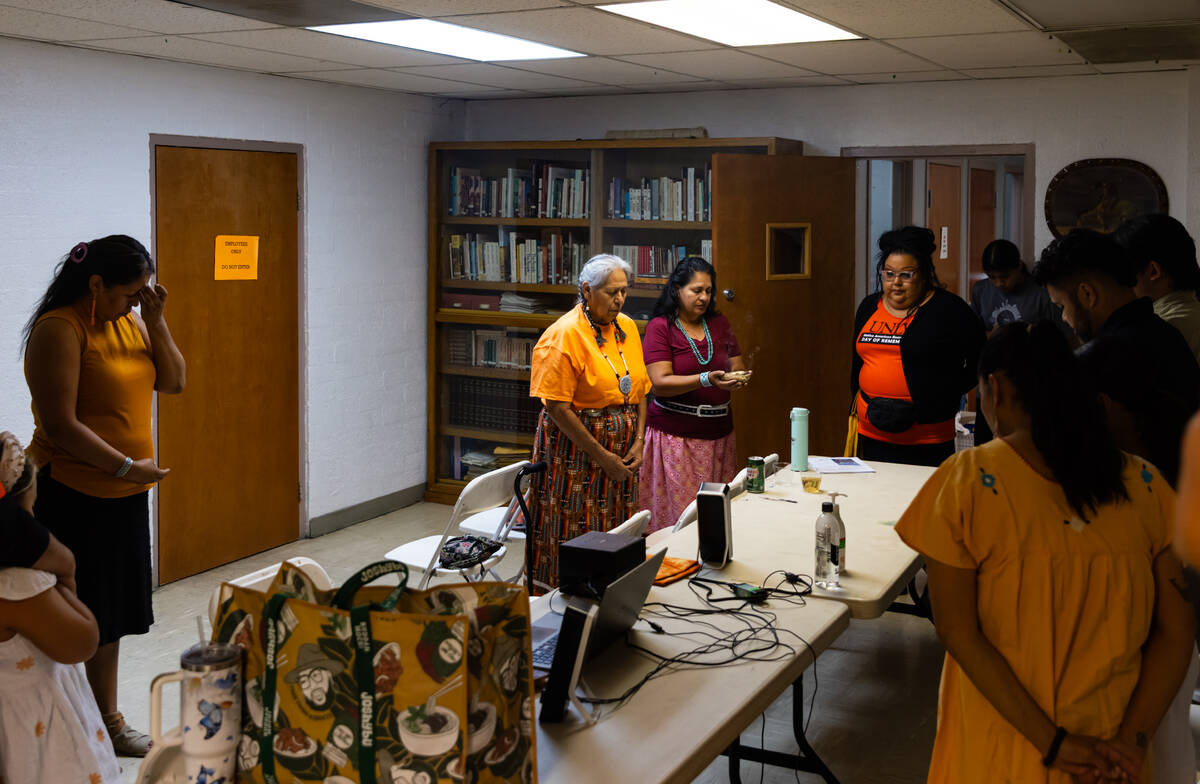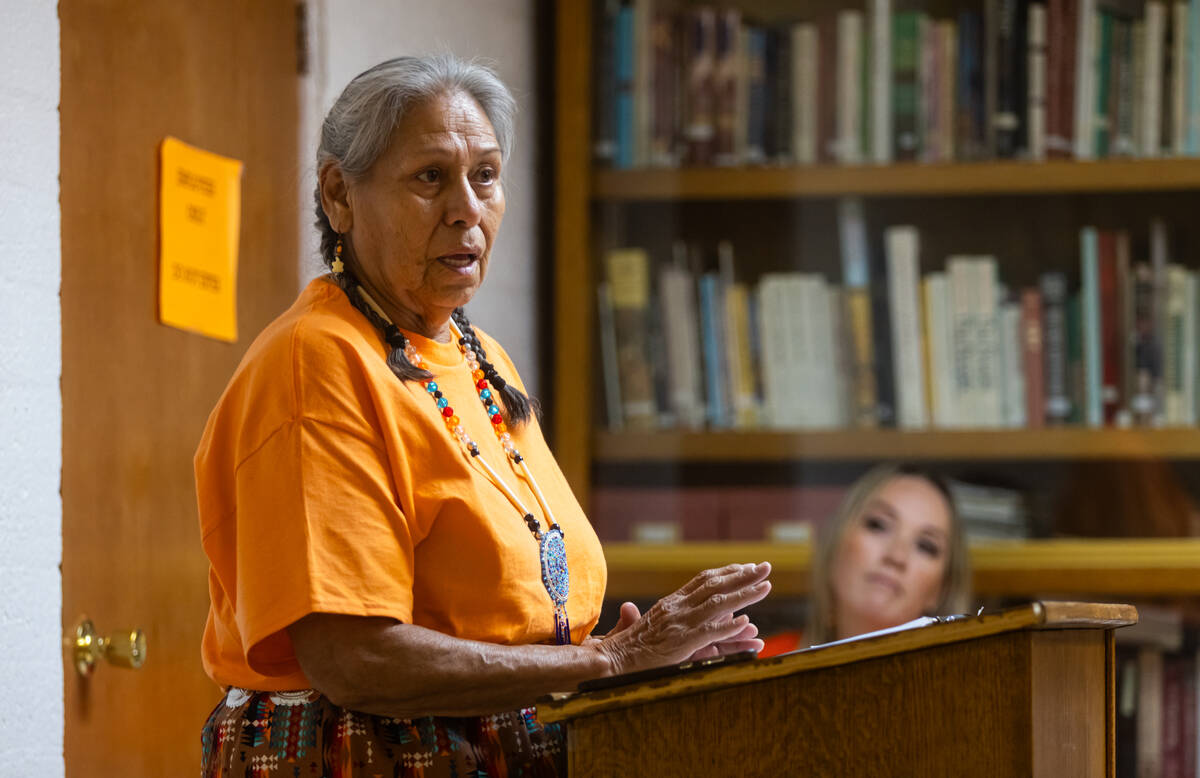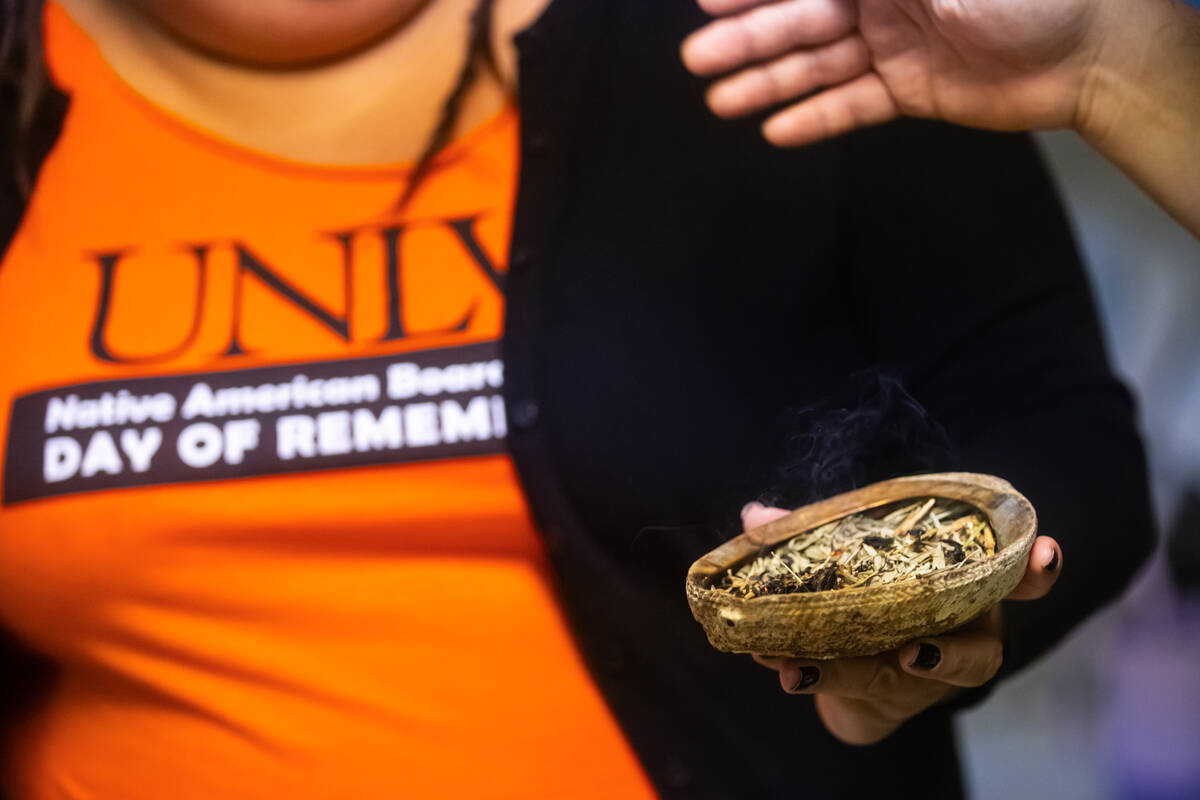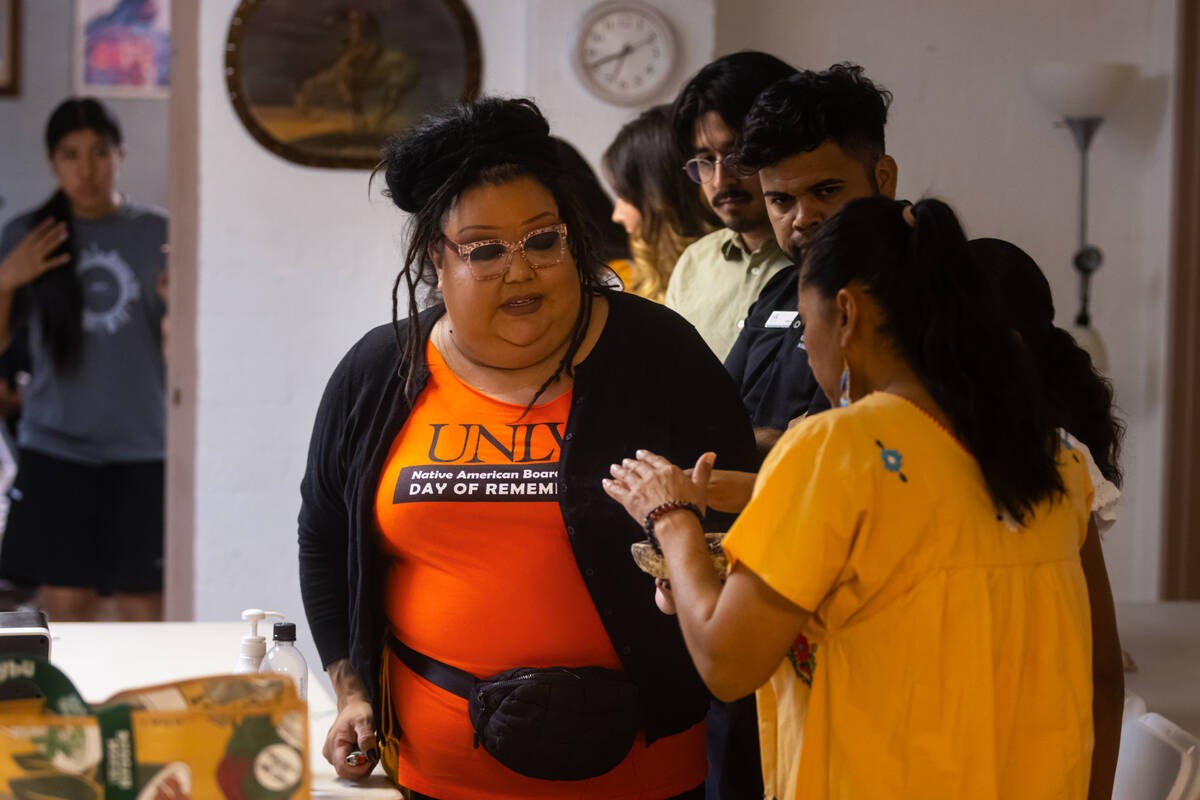‘A shameful moment in history’: Native American victims, survivors of boarding schools remembered
Las Vegas schoolteacher Elliott Nilsson believes people in the United States should be more aware of the hardships that many Native Americans faced at government-backed boarding schools in years past.
Decades after the last Native American boarding schools stopped receiving federal money, the trauma and abuse inflicted by the institutions are receiving attention through events like the one that took place Tuesday evening at the Las Vegas Indian Center, on West Bonanza Road near Rancho Drive.
But Nilsson, 48, a Canadian-born son of two boarding school survivors in his home country, said he believes many still don’t know about the abuses that were so common at the schools in Canada and the U.S.
In both countries, Sept. 30 is the day in which the victims and survivors of Native American residential schools are remembered and honored. In the United States, the day is known as the National Day of Remembrance for Indian Boarding Schools. In Canada, Sept. 30 is a public holiday formally known as the National Day for Truth and Reconciliation. The day is also known in both countries as Orange Shirt Day, as observers are urged to wear orange.
“It was important to me because my parents are both residential school survivors,” Nilsson said. “It was important to be there to support others who have been through this residential school experience. It was such a shameful moment in history. The Canadian government has done so much to acknowledge what happened, but we, for the most part, have not done that here in the United States.”
Tuesday marked the first time that the remembrance event took place at the Las Vegas Indian Center. Close to 40 attended.
A fifth-grade teacher at Culley Elementary School in Las Vegas, Nilsson said he wants to help raise awareness about what his parents, members of the Saddle Lake Plains Cree First Nation community, went through.
According to the National Native American Boarding School Healing Coalition, Nevada was home to four of the schools.
The Fort McDermitt Indian Boarding School, Pyramid Lake Boarding and Day School, Stewart Indian Boarding School, and Western Shoshone Indian School were all located in the northern part of the state.
“Young people now, many have no clue that these schools even existed,” Nilsson said. “It’s about teaching and standing up for who we are.”
Melissa Spence, who works for a nonprofit called Indigenous Vision, is also from Canada and a member of the Anishinaabe Nation. Spence, 44, also lives in Las Vegas and helped organize Tuesday’s event.
“In the U.S., talk and acknowledgement about what happened is still in the early stages,” Spence said. “A lot of people are still feeling the impacts because the inter-generational trauma was passed down. Family structures were broken and the effects have been cycling through generations.”
Elliott Nilsson’s name was previously misspelled in a photo caption accompanying this article.
Contact Bryan Horwath at bhorwath@reviewjournal.com. Follow @BryanHorwath on X.























